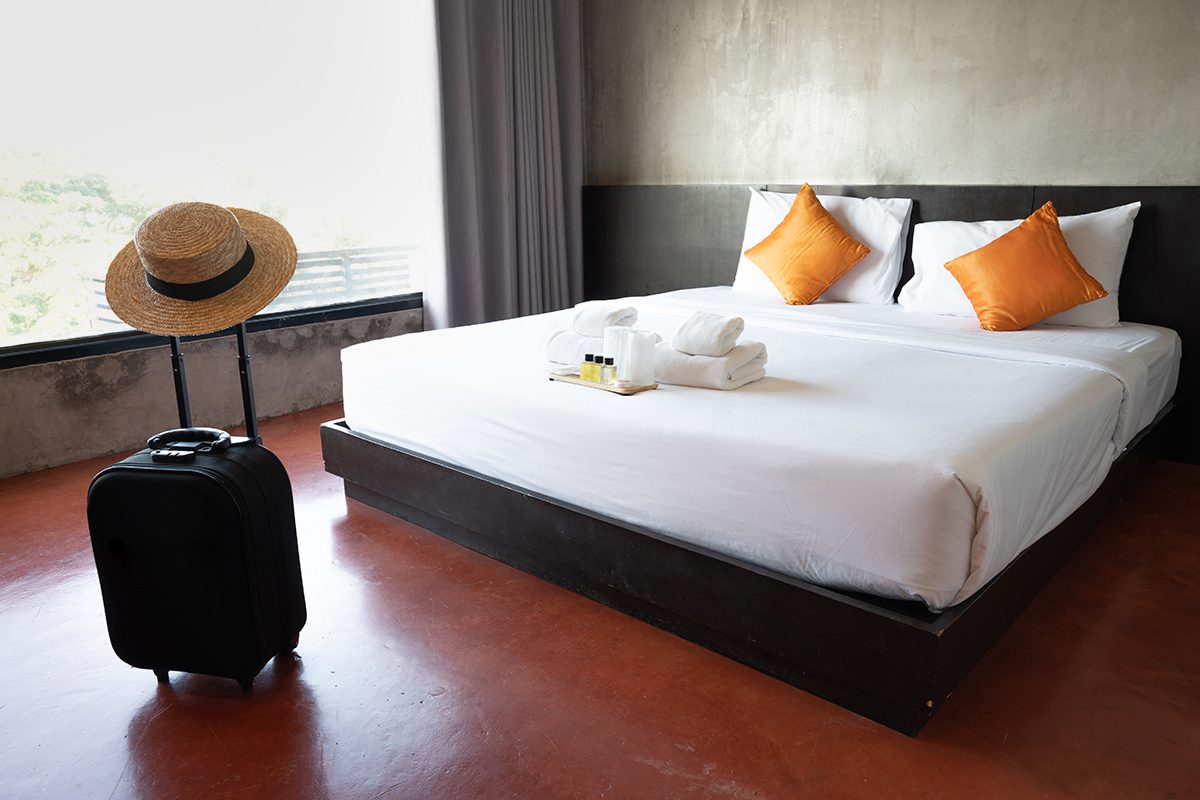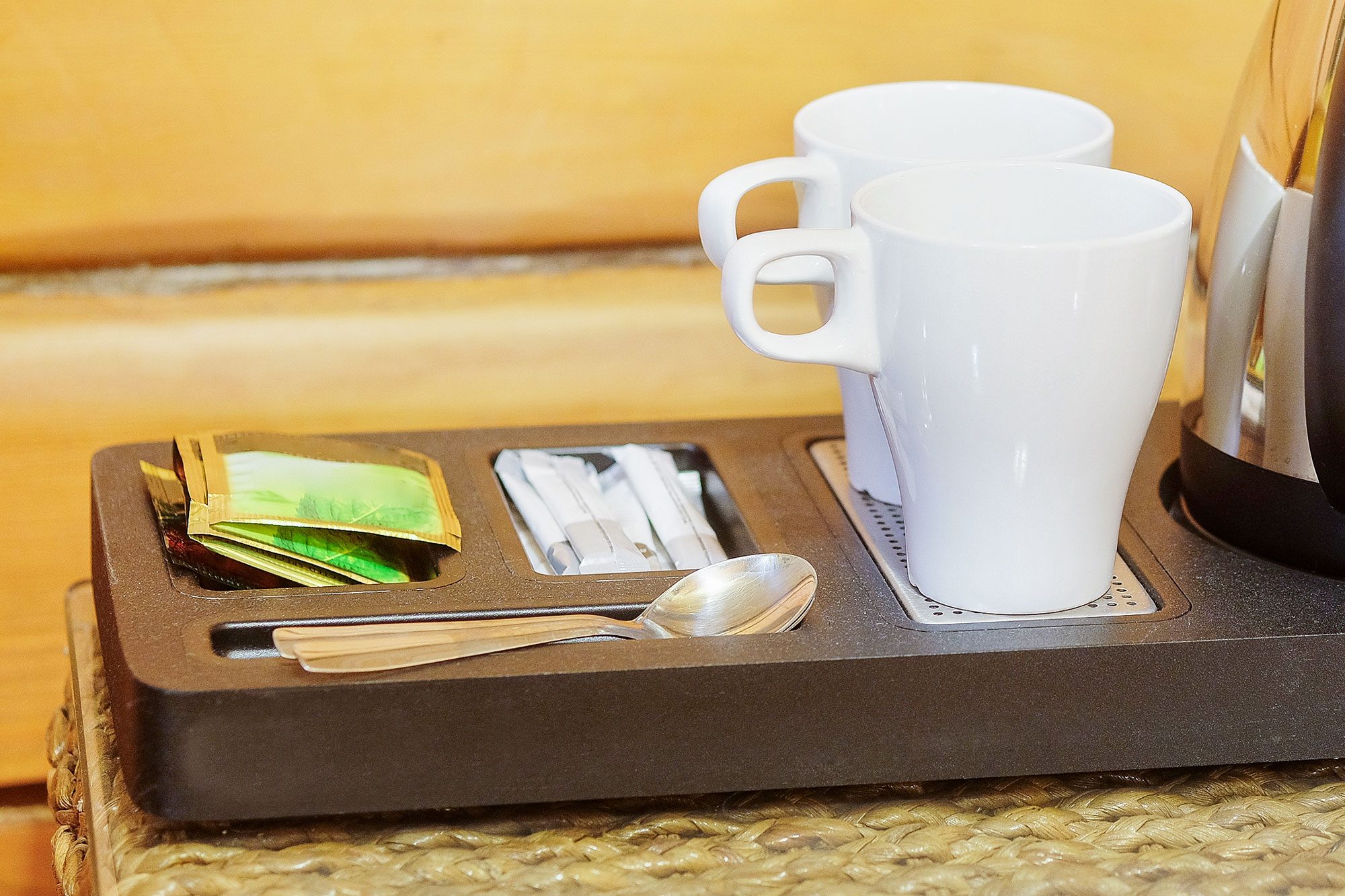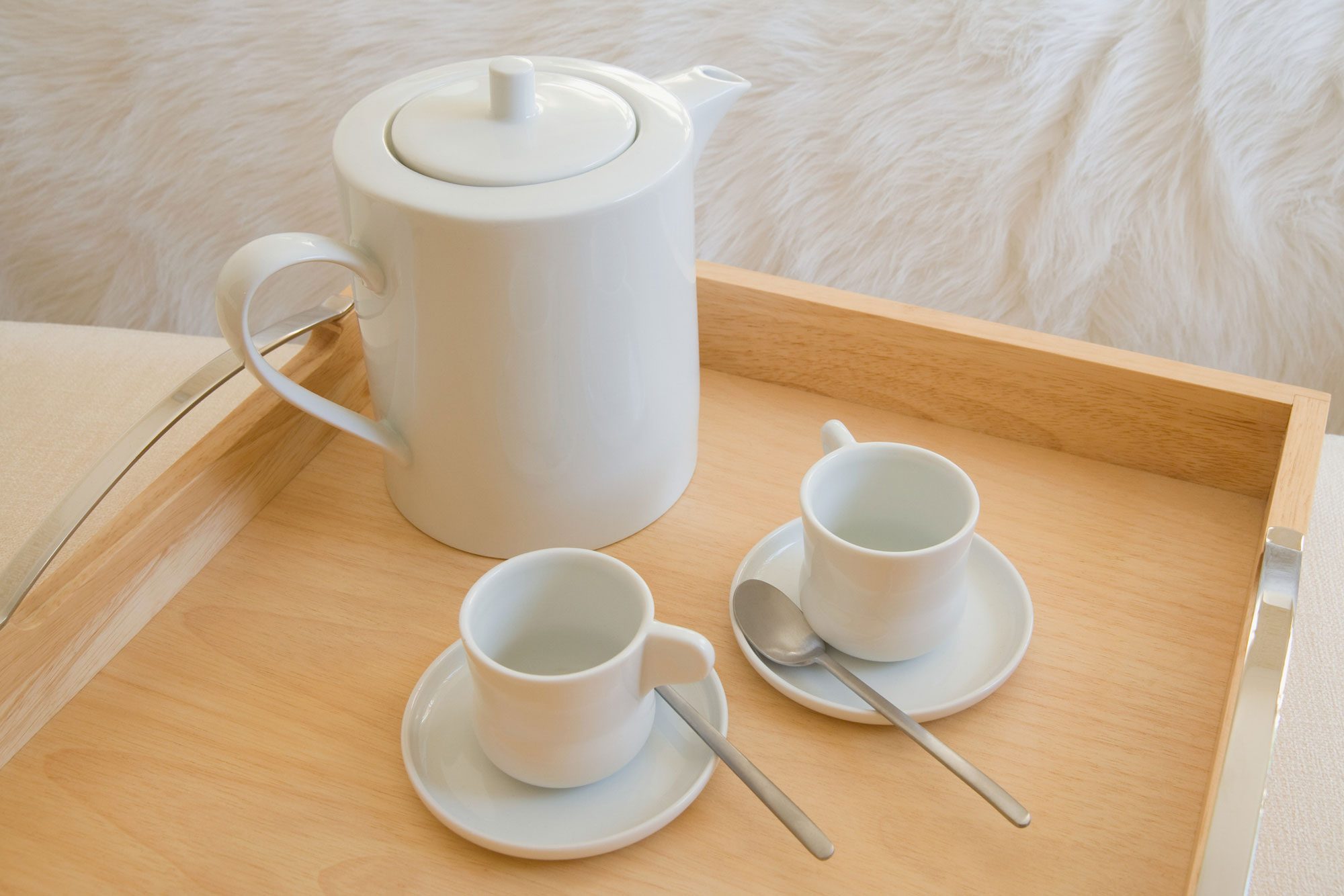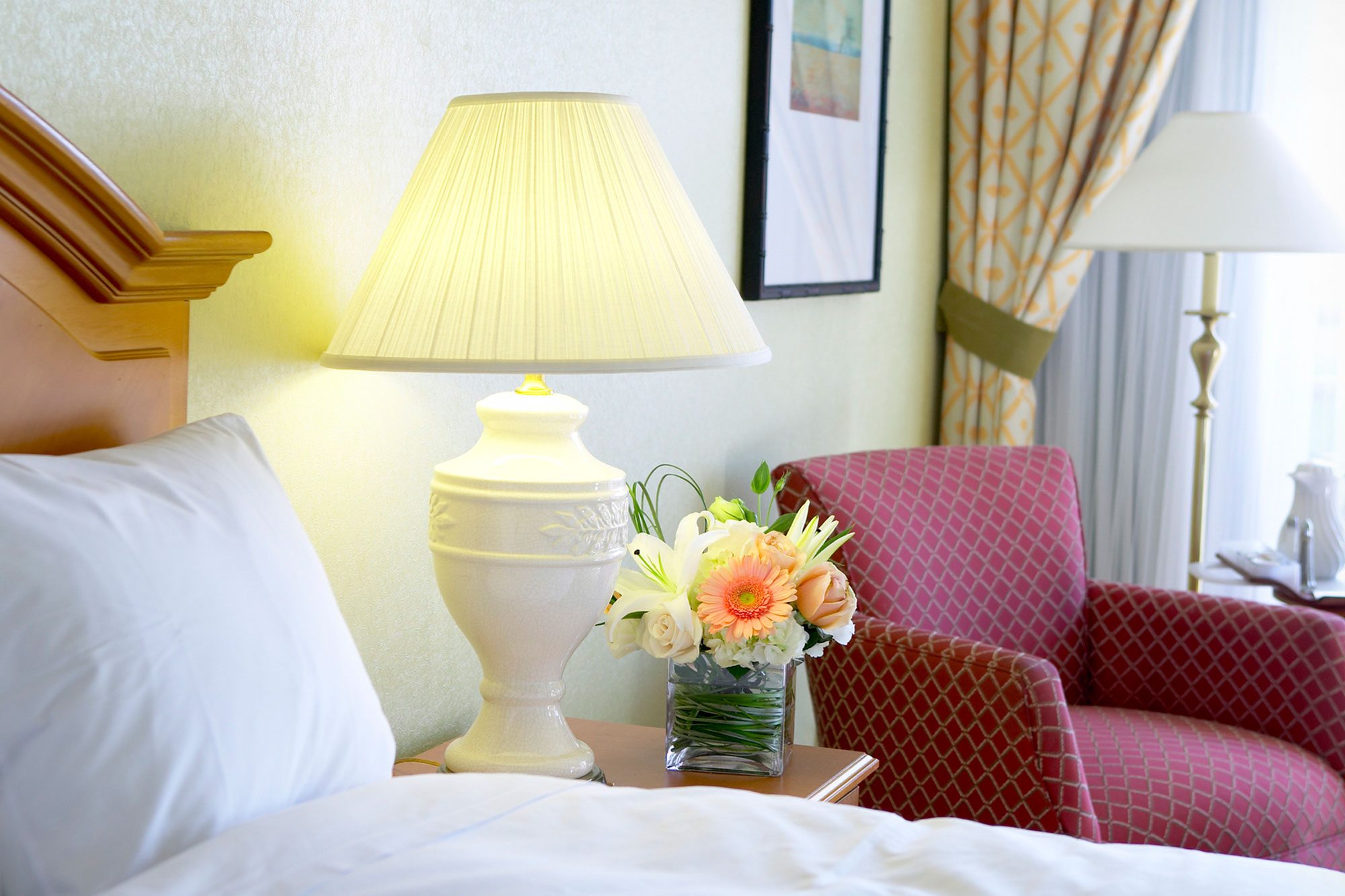Hotel rooms are packed with mini toiletries, plush robes and electronics. Keep these guidelines in mind when thinking about taking something from your room.

6 Things You Can Take from Your Hotel Room (and 6 You Can’t)


What you can take: Soap
If there’s one thing most hotels reliably have in their rooms, it’s soap. And according to Ousman Conteh, general manager at Claridge House Chicago, it’s OK to take these mini bottles or bars from your hotel room. “Often, hotels receive negotiated pricing for items from another brand,” he says.
Plus, the hotel wants you to open and use them. “They are complimentary, and we want you to enjoy them,” Allen says. “If you have opened them, please take them with you. Otherwise, they will just be tossed in the garbage.” She adds that even if they are unopened, you are welcome to take them as a gift. If you don’t want them, though, they’ll be used for the next guest.

What you can take: Shampoo, conditioner, body wash and lotion
Much like the mini soaps stocked in the bathroom, the travel-size shampoo and conditioner, body wash and lotion are complimentary and therefore also something you can take from a room, our experts say. Hotels sometimes brand these items too, Conteh adds, so taking their shampoos and sporting the hotel brand name can help spread the word about a hotel—which is a win-win! The same is true of motels.
Just like soap, unused bottles that are left behind will be used for the next guest, but opened bottles will be thrown in the garbage.

What you can take: Tea and coffee
Tea bags, coffee packets or cups, hot chocolate packets, sweeteners, stirring sticks, disposable spoons and disposable cups are all fair game to toss into your suitcase, according to Curt Asmussen, managing director of Obie Hospitality. You should take only the ones left in your room, however. Don’t go down to the beverage station in the waiting area and clean it out. That’s definitely not OK. FYI, the housekeepers are the ones who restock all these room items, so don’t forget to tip hotel housekeeping on your way out.

What you can take: Paper and pens
Many hotels and motels come equipped with a notepad and pens. Some may also have printed tourist maps, coupons or vouchers for local attractions. Since these paper items usually have the hotel name on them, they serve as marketing tools to spread brand awareness. Look at you being an unintentional travel influencer! That said, you may want to douse the pens with some hand sanitizer before packing them, as they are one of the dirtiest items in a hotel room.

What you can take: The Bible
Ever wondered why hotels have Bibles? It’s not as common anymore, but some hotels still have a copy of the Bible in the nightstand. These are provided by a religious organization, most often the Gideons, in hopes that travelers will take them and read them, so feel free to pop it in your bag if it interests you. The hotel generally doesn’t pay for them, and the religious organization will restock them, which means you won’t get charged if you take one.

What you can take: Anything else “complimentary”
In addition to the above, hotels and motels often provide other complimentary items, like dry-cleaning bags and certain promotional items, says Asmussen. Higher-end hotels may provide extras like shoe-shine kits, travel-size sewing kits, toothbrushes, razors, cotton swabs and nail files—all of which are fine to take.
Joanna McCreary, general manager for the W Hotel in Austin, Texas, adds that some hotels even give exclusive complimentary gifts, which you are, of course, free to take. “We don’t advertise it,” she says, “but we love giving people Champagne at check-in on peak arrival days at the W Austin.” She explains that the company gets a good deal on nice bottles since it buys in bulk, and hey, who doesn’t love complimentary surprise Champagne after a long trip?

What you can’t take: Sheets and towels
When thinking about taking something from a room, step away from the towels. Towels are the most commonly stolen item from a hotel room, according to a 2023 survey of nearly 1,500 hotels conducted by Wellness Heaven, a luxury and spa hotel guide. Blankets and pillows were No. 9 and 10 on the list.
However, while it might be common, it is not OK, Allen says. Hotel sheets, towels, blankets, pillows and other linens are things you definitely shouldn’t take from hotel rooms. As McCreary explains, a hotel’s goal is to prepare the perfect room for the next guest. Taking pricey essentials, like sheets, makes it harder for hotel staff to do their jobs. It creates extra steps for housekeepers, who need to fetch new ones and update inventory, and costs the hotel money—which, over time, gets passed on to all the guests in the form of higher rates.

What you can’t take: Batteries and electronics
Batteries—usually taken from inside the TV remote control—clocked in at No. 6 on the most commonly lifted items from hotel rooms, while tablets were in the No. 8 spot. Batteries are cheap, but it’s annoying for the next guest to discover they are missing when the TV remote doesn’t work. While you won’t necessarily get charged for them, it’s poor hotel etiquette to take them. And then there are tablets, which are often provided in higher-end hotels for ordering services and pulling up maps, menus and schedules. They are pricey and most definitely not a perk of your stay. Staff will notice their absence, and you will be charged if you take this item, usually the amount it costs the hotel to replace it.
Conteh notes that in most cases, there are disclaimers on all items that shouldn’t leave the room—especially expensive electronics. “An example is Claridge House’s Aavgo tablet,” he says. “They note that there will be a cost levied on the room charge if a tablet or other item of value goes missing or is removed from the premises.”

What you can’t take: Hangers
Hangers are a surprisingly popular item to take from a room—they’re third on the list—probably because they’re relatively small and easy to fit into a suitcase. But even though they may not look expensive, they’re not on the list of things considered complimentary for guests, so you should leave them in the closet, Allen says. Sometimes guests will bend or break the hangers to use for other purposes, another thing you shouldn’t be doing in your hotel room.

What you can’t take: Robes
They’re cozy, plush and oh, so snuggly. In fact, you may want to take them so you feel like you’re on vacation every day … but you shouldn’t. Robes are the second-most-common item people consider when taking something from a room, but you will be charged if you do, say Conteh and McCreary.
On the other hand, disposable slippers—either the elasticized kind you can slip on over shoes or the rubber kind like those you get at nail salons—won’t be used again and are typically OK to take.

What you can’t take: Drinking glasses, cutlery, glass bottles, non-disposable plates and mugs
Many hotels provide extended-stay or “apartment” accommodations that include a small kitchen area. Anything that you find in the kitchen that isn’t disposable needs to stay in that kitchen, including utensils, glasses and cookware, Allen says. If you take them, expect to see a charge show up on your bill. Worse, if you take too many things, it could lead to consequences beyond an extra charge to your room—including being blacklisted from the property.
As I found out with my pillow escapade, hotels can and do keep records of guests who steal items or trash hotel rooms. And they might ban those people from booking rooms again. In rare scenarios, people have been arrested for theft. Thankfully, I wasn’t one of them!

What you can’t take: Decorative items
People often take flower vases, artwork, figurines, artificial flowers and other decorations out of their hotel rooms. It makes sense that you might want them—hotels often have a distinctive style designed by professionals. But if you find yourself admiring the look of your room, snap a picture and see what you can recreate at home, Allen says.
Remember: Hotels are a wonderful luxury when traveling, so enjoy all of the amenities while you are there. The luxurious experience is the best memento to take with you—well, that and the scented soaps.
Additional reporting by Emily DiNuzzo.
About the experts
|
Why trust us
At Reader’s Digest, we’re committed to producing high-quality content by writers with expertise and experience in their field in consultation with relevant, qualified experts. We rely on reputable primary sources, including government and professional organizations and academic institutions as well as our writers’ personal experiences where appropriate. For this piece on what you can take from a hotel room, Charlotte Hilton Anderson tapped her experience as a longtime journalist who specializes in etiquette for Reader’s Digest and interviewed hotel owners and managers. We verify all facts and data, back them with credible sourcing and revisit them over time to ensure they remain accurate and up to date. Read more about our team, our contributors and our editorial policies.
Sources:
- Tamara Allen, owner of a small independent hotel in Las Vegas; email interview, July 1, 2024
- Ousman Conteh, general manager at Claridge House Chicago
- Curt Asmussen, managing director of Obie Hospitality
- Joanna McCreary, general manager for the W Hotel in Austin, Texas
- Wellness Heaven: “Study: Theft in hotels”



















